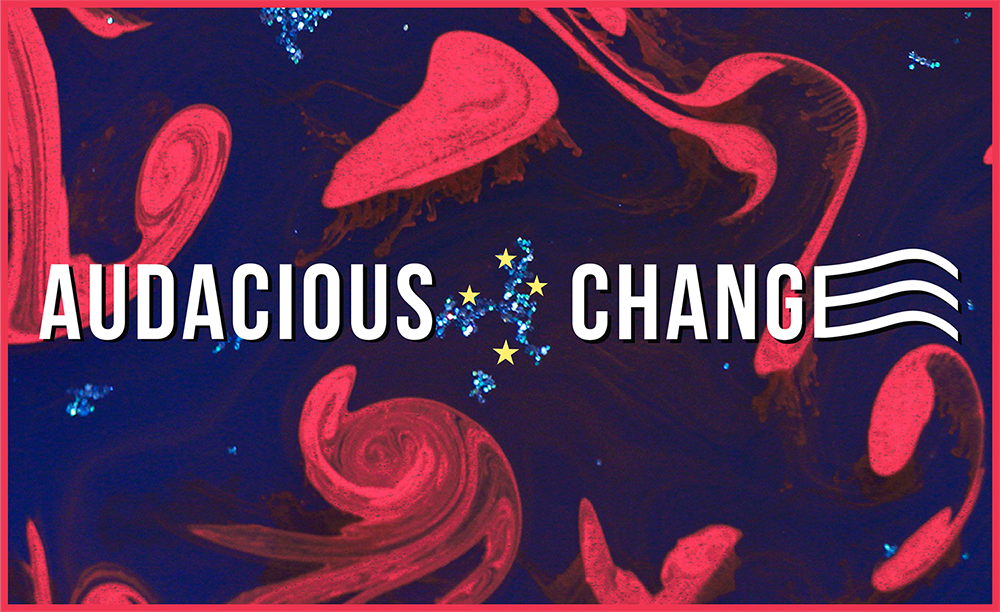Why brand purpose has already become one of the most important discussions for businesses in 2019

When Gillette released its commercial ‘We believe: the best men can be’ last month, it was met with mixed reviews. There were those that didn’t want their behaviour to be policed by a giant corporation (and subsequently tried to flush away their razors), those who applauded the brand for fronting a social issue and those who thought Gillette was just virtue signalling – how could it be fighting toxic masculinity, and yet still charging a more premium price point for pink razors for women?
In 2019, there is increasing pressure on businesses to exist for a reason beyond just a commercial means, with publications like the Harvard Business Review touting ‘purpose’ as a key to business success. This is because now that the world is facing an increasing raft of social and environmental challenges, a link to these problems has been drawn to the pre-existing economic model the world has been operating under. Capitalism is now being seen as an increasingly imperfect system, and the cracks are beginning to show in the social and environmental welfare of the world.
If you haven’t seen Dutch historian Rutger Bregman berate a group of billionaires at Davos World Economic Forum for needing to shut up about philanthropy being the answer to saving the world and start talking about paying more taxes – and the fact that 144 of them flew in on to hear Sir David Attenborough speak about climate change on private jets – it’s worth a watch.
Consumers no longer want companies to just sit on the sidelines while they grapple with a widening inequality gap, climate change and various other complex issues. Fair enough, too – businesses don’t exist in a vacuum, and so the communities they operate in want them to help influence change through their platforms and big budgets by fronting relevant issues facing the world today.
But these same consumers are also more disillusioned than previous generations and don’t want to get, to quote Ja Rule – hustled, scammed, bamboozled, hoodwinked, and led astray – by the social cause equivalent of greenwashing, the newly coined ‘woke washing’.
Because while it’s all very well and good for Gillette to use marketing to promote a message about why toxic masculinity is wrong, their messaging starts to look far less authentic when its brand is worth US$17.1 billion, and yet its gendered product prices don’t align with those same values they’re promoting.
And when they miss the mark with the key demographic demanding social change, they’ve ticked the box on taking a risk, but alienated both their progressive and their conservative customers (if the 1.3 million dislikes on YouTube are anything to go by). Not the desired outcome, by any means.
This whole discussion around brand purpose is why I sought out the executives of some of New Zealand’s most well-known companies in January and asked what social issues they’d be fronting in 2019.
While all of their responses were noble causes, they didn’t list many specific actions their company is going to take over the course of the year that consumers can hold them accountable for, either.
The other interesting aspect to note is that none of them were sticking their neck out on anything particularly controversial. The issues they picked made sense in terms of their company’s brand identity – and therefore, commercially – but it meant they weren’t taking a stand on something risky, either.
Consider Nike, which launched its Colin Kaepernick campaign opposing racism, social injustice and police brutality, running the risk of losing sales and its more conservative customers with the bold tagline, ‘Believe in something, even if it means sacrificing everything’.

Or Patagonia, the outdoor clothes retailer which donated US$10 million of the tax cuts it received from Trump to environmental organisations. It lives, breathes and understands its brand purpose totally: that if the environment becomes a hellhole due to climate change, it’s out of business.
This isn’t a rebuke to New Zealand businesses – while culturally, we’re conservative when it comes to taking risks, we’re also pretty ethically sound. Our government is looking beyond economics as a measure of success and looking at the wellbeing of our citizens. We punch above our weight when it comes to business with purpose, with an estimated 2,500 social enterprises operating in New Zealand as of last year and more sure to join the fray in 2019. Our corporates are doing a pretty good job, too, but we believe it’s a time where brands can now afford to be bolder in both their actions and their sentiments, because that is the way the world is heading now – and customers will respect them all the more for it.
So that’s why in February, we’re honouring the brave individuals and businesses who are responding and adapting to this shift in consumers’ mentality. They’re using business as a means to not only achieve commercial success, but to make a meaningful difference in the world, solve a key problem and set the social, cultural and ethical agenda for consumers.
They’re not just ‘woke washing’ – they’re living and breathing embodiment of this brand purpose, and through this, they are creating audacious change.
Check out our Audacious Change topic hub here. If you’ve got something to say around this topic or reckon your business should be featured, get in touch with us here.




